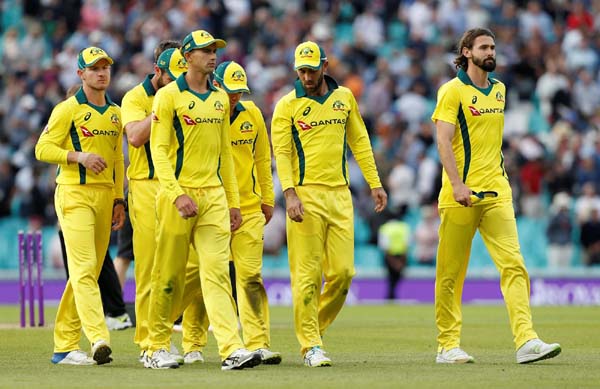
Aussies chase crucial points in revamped ODI system
Martin Smith
With two T20 World Cups in the space of 12 months and the next World Test Championship cycle about to get underway, it’s understandable that the 2023 50-over World Cup may not be front of mind for cricket fans right now.
But while it may have gone under the radar, Australia’s one-day World Cup campaign is already underway and will continue against West Indies this week.
With the official launch last year of the first-ever ODI Super League, all One-Day Internationals finally have what they have lacked for almost five decades – context.
The Super League will see the top 13 teams in the world play eight three-game bilateral series each over the course of three years, with the top seven teams plus hosts India to earn automatic qualification for the World Cup.
It means the bottom five teams, which will include some major Test-playing nations, will be forced into a secondary qualifier tournament in 2023 in order to guarantee their spot at the game’s showpiece event.
And depending on the outcome of that qualifier tournament, it could also see one of those nations relegated into the second tier of one-day cricket and dropped completely from the next cycle of the Super League. It all means the days of ‘meaningless’ ODIs are over.
With 10 Super League points on the line in every contest, including Australia’s three ODIs against the Windies in Barbados this week, every single result matters, and could be the difference between qualifying for the World Cup and not.
A little less than 12 months into the Super League, it’s difficult to get a grasp on who’s in danger of missing automatic qualification due to the uneven schedule, which has been thrown into chaos by the pandemic.
Fourteen series have already been postponed, creating an unbalanced points table where England have played 15 times while New Zealand, Afghanistan and the Netherlands have played just three games each.
But already, some trends have emerged that should have some proud Test-playing nations worried about their hopes of qualifying automatically for the World Cup.
Top of that list is Sri Lanka, who are currently ahead of only Zimbabwe on the Super League table with just one win from 10 matches, their latest defeat a seven-wicket thrashing at the hands of a second-string Indian side on Sunday.
Home series against Zimbabwe and Afghanistan to come loom as their best chance to make up ground, while they’re also scheduled to host South Africa, and face New Zealand away before the Super League cycle is over.
South Africa have also made a slow start, including their shock loss to 12th-ranked Ireland last week. That defeat and the washed-out series opener meant they picked up just 15 of a possible 30 points from their series against the Irish.
Australia beat England 2-1 and India by the same scoreline last year, meaning they will take a 4-2 record into their three-game series against the Windies (3-3) in Barbados this week.
A 3-0 sweep could see either team surge up the ladder and while a series loss by the same scoreline won’t be a fatal blow to their World Cup hopes, it would increase the pressure on their remaining matches.
Australia still have home series against New Zealand (to be played this summer), South Africa (scheduled to be played in 2022) and Zimbabwe (which was postponed last winter) to come as well as away campaigns against Afghanistan and Pakistan.
The great unknown with the Super League, and what could prove to be the deciding factor, is the fate of the 14 postponed series.
With the schedule already cramped as it is, it’s unclear if all teams will be able to reschedule these games.
When it became apparent that several postponed series in the recent World Test Championship would not be played in time, the points system was switched to factor in the percentage of points earned, indicating a similar system could be introduced if Super League matches are not able to be played.
Depending on how Australia fare in their upcoming campaigns, it could mean rescheduling their home series against Zimbabwe will take on added importance in the coming months.
And it means the three matches this week between Australia and the Windies, who have played 140 times in ODI cricket, are more than important than most of those that have come before them.
